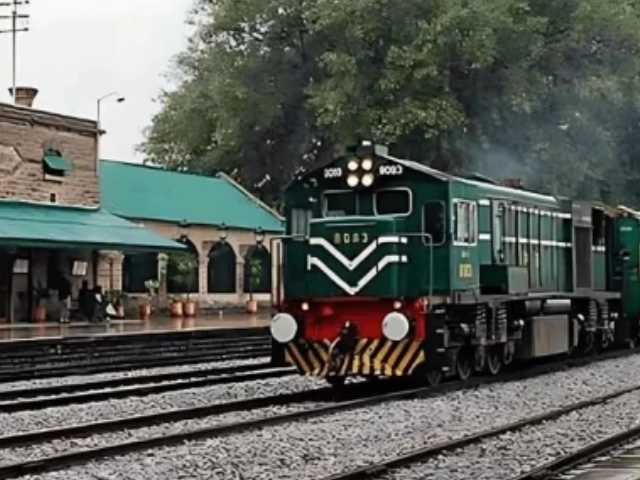Jaffer Express resumes service after track blast repairs
Terrorists blew up a railway track near Spezand, injuring passengers, disrupting operations

The Jaffer Express resumed operations on the Quetta–Peshawar route, five days after service was suspended.
Railway officials said the train had been halted due to the destruction of a track and bridge near Spezand in a September 23 bomb blast. They confirmed that repair and restoration work on the damaged infrastructure has now been completed.
The suspension came after terrorists blew up a section of the railway line near Spezand which left multiple passengers injured and disrupted operations along the route.
The explosion occurred between Degari Cross Speedent and Sariab Railway Stations, damaging the track and derailing the engine and five coaches of the Peshawar-bound train. Authorities believe the blast took place 30 to 45 minutes before the train reached the site.
Officials said the device was an improvised explosive planted near the track, which detonated as the train passed. The blast caused four bogies to derail and left several passengers, including women and children, injured.
Both the Jaffar Express and Bolan Express, scheduled to depart from Quetta, were cancelled, with full refunds issued to passengers. Restoration of services depends on the completion of repair work, officials said.
Relief operations began shortly after the incident, with heavy machinery deployed to clear the wreckage, realign the overturned coaches, and repair the damaged track. An investigation into the incident was initiated.
Jaffar Express hijacking
Earlier in March, terrorists hijacked the Jaffar Express train carrying over 400 passengers in nine bogies. Before clearance operations could begin, the attackers martyred 21 passengers. Jaffar Express was on its way from Quetta to Peshawar when it came under attack in the Dhadar area of Bolan Pass.
Read: Blast derails Jaffar Express in Balochistan's Mastung, injures a dozen passengers
They also detonated explosives in tunnels and on the tracks before opening fire, bringing the train to a halt in a mountainous area of Sibi district, Balochistan, which was difficult for security forces to access.
The DG ISPR confirmed that the attackers had been in contact with their handlers in Afghanistan, underlining the cross-border nature of the operation.
Earlier this month, the mastermind behind the passenger train hijacking in Balochistan was killed under mysterious circumstances in Afghanistan, reinforcing Pakistan's claims that terrorist groups of different hues have formed a nexus across the border where they maintain safe havens.
Gul Rahman, aka Ustad Mureed, affiliated with the Majeed Brigade, the suicide squad of the banned Balochistan Liberation Army (BLA), had orchestrated the hijacking of the Jaffar Express, which was traveling from Quetta to Peshawar on March 11.
Indian media and social media reports say Gul was killed in Afghanistan's Helmand province on September 17, 2025.
Gul was reportedly a trainer and operational commander of the Majeed Brigade, which the United States has also designated as a foreign terrorist organisation. He was involved in attacks targeting Pakistani security forces, Chinese nationals, civilians, and state institutions.




















COMMENTS
Comments are moderated and generally will be posted if they are on-topic and not abusive.
For more information, please see our Comments FAQ